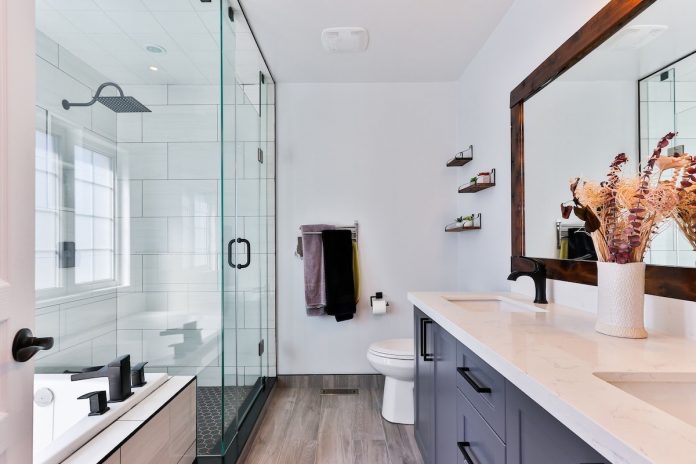7 Things To Consider when Planning To Renovate Your Home
If you are planning to renovate your home, there are a lot of things to consider. Most homeowners are primarily looking for more space, but there are questions that should be addressed before you begin your renovation.
Not all additions will automatically add value to your home. The right addition adds functionality, space, and is done with quality workmanship. If you aren’t planning on staying in your home for more than five years you might struggle to get a good return on your investment.
The most important question to ask yourself when planning an addition to your home is if you are adding space for the sake of it, or if you’re adding a critical part to your home that is otherwise missing. Through clever decor arrangements and reorganization, some homeowners can get the room that they need in their homes without the hassle and expense of constructing an addition.
If you decide that your home is missing an essential element and you want to go forward with your addition, there are several aspects to consider. Checking with your home insurance for coverage expansion, investigation required permits, and considering how your addition will affect the style of your home are just a few things to think about. Let’s take a look at some of the most critical things to consider when you are planning your home renovation.
Neighborhood Style
Your neighborhood is likely made up of similar styled and sized homes. If you are living in a starter home community filled with single-family dwellings, adding a large addition may have consequences down the line. An addition will put your home outside the norm in that area which could make it harder to sell in the future.
Your addition may bring up the value of your home, but building an addition onto a home in a neighborhood with lower market values could make it difficult to get your asking price. Before you start your project, you may want to talk to a real estate specialist that can advise you on sticking within the style and market values of the area.
House Style
Matching your stonework, siding, and roofline can be tough to get right when constructing your addition. In some cases, trying to blend it into the current structure can make it look more awkward. You might consider going in another direction, making a bold statement with the materials, shape, and style of your addition.
It’s still important to consider your materials carefully so that they match what is common in the surrounding neighborhood. Adding a sleek and modern addition to a neighborhood that is filled with traditional housing can make it stand out in a negative way.
Planning
A home addition is a huge project that should be given lots of consideration and planning before starting. Your initial concept and casual drawings should be completed months before you break any ground. As you consider the project and bring in contractors, your plan will morph and develop into the finished project that you really want.
Your first official action, after planning out your initial drawings, is to check with your county building department about any codes, zoning, and permitting issues that need to be addressed. Do not ever start a building project without the right permits. You may find that the area has certain restrictions that you need to follow including structure size, environmental limitations, and placement on the site.
If you don’t have the right knowledge, you should consider working with an architect or building contractor. Their expertise can help you manage your project professionally and guarantee that you will get the result that you want. Your design team can help turn your drawings into scale building plans with square footage, floor plans, footing, and other details that your local planning department will require.
Green Options
When you are planning the addition to your home, using green materials is a popular option to consider. Green building has quickly become the industry standard. From metal roofing to environmentally friendly construction practices, going green with your addition can save you money and the ecology surrounding your home. When it’s time to sell your home, buyers will be interested in the green features that you have added to your home.
Choosing Your Contractor
It’s important to match your project with the right builder when you’re planning to renovate your home. Even the most experienced building contractor may not have the expertise that you need for your addition. When researching contractors, make sure that you choose someone that has a portfolio that includes similar types of projects to what you want.
Here are a few things that you can ask your potential contractor to help you make the right choice:
- With their contacts in the business, can they recommend a designer or architect for your project? Building a team that has some experience working together can help you run a smoother project.
- Do they think that your current septic and electrical systems can accommodate the new addition? Knowledgeable building contractors will know what needs to be done to get your addition built without complications.
- Will the contractor deal with the permits, approvals, and filings that are needed to legally proceed with your addition project? Having these aspects of your build dealt with by a professional can save you a lot of time and stress.
- How long will the project take, and how much will it cost? During the interviewing process, an experienced contractor should be able to give you a ballpark estimation of how long your project will take. You can request a formal quote that will include cost and a schedule for completion.
- Are they properly insured and licensed? Never start a large project like a home addition without making sure that you are dealing with professionals. You can request a copy of both the license and insurance information from contractors during the interview process.
Consider the Inconvenience
Building an addition to your home will make everyday living a challenge. From the noise, the mess, and the constant activity of your contractors, this kind of big project can turn your home into a stressful environment.
The extra activity and construction noise can also be an inconvenience and disturbance to your neighbors. It’s a good idea to let your immediate neighbors know about your plans and reassure them that you will try to be as invasive as possible. Make sure that you talk to your contractors about a realistic timeline and schedule of work so that you know what to expect during the project.
Set Your Budget when Planning To Renovate Your Home
No matter the size or the expected budget of your home addition, it will likely cost more and take longer to complete than you anticipate. If you are working on a tight budget, it’s critical to work with a professional team that can help you create the most realistic budget. It is recommended that you set an additional 15-20% aside in extra funds for contingencies that may cost you later in the project.
The average cost of a home addition depending on style and size can run from $35,000 to $60,000, or $125 to $400 per square foot. The money that you will spend will extend beyond just paying your contractors and the cost of materials. Here is a list of costs that you should expect to include in your budget.
- Up to $2,500 on blueprints and plans
- $2,500 to $5,000+ on designer and architect fees
- From $1,500 to $4,000 to repair landscaping surrounding the addition
- Cost of all zoning fees and permits
- You can expect up to a 7% increase on your property taxes with an addition
To keep extra costs to a minimum, it’s important to make sure that you have a strong and binding contract with all of your team members. Make sure that all of your contractors have provided you with comprehensive estimates before you start your project to make sure that you stay as close to your budget as possible.
If you aren’t sure how you are going to pay for your home addition, you can consider a home equity loan. These flexible and low-interest loans are designed to allow homeowners to take advantage of some of their home’s value to make improvements where necessary. The repayment plans on this kind of a line of credit loan can be the best way to finance a home addition project.
Home addition projects come in a variety of styles and sizes. From small bump-outs to full rooms or wings, adding space to your home can be a practical project that will benefit your family and the ultimate value of your home. This type of home renovation project needs to be considered carefully from many angles.
Once you know what you need, gather a team with the right expertise that will help you build the addition that is perfect for your family and your home. Careful planning, setting a realistic budget, and thoughtfully considering all the aspects of your home addition is the right way to move forward with this kind of major project.
Thank you for reading 7 Things To Consider when Planning To Renovate Your Home






